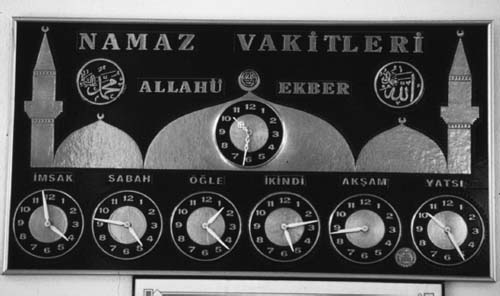IslamReligious Beliefs |
What do Muslims believe about God? |
God is one, transcendent, and wholly unlike anything in ordinary human experience. But such a barebones description of ultimate reality leaves little for the human heart to grasp. Muslim tradition speaks of God most of all through the “Ninety-Nine Beautiful Names.” “Compassionate” and “Merciful” are by far the most important of these. They occur in the phrase “In the name of God, the Compassionate, the Merciful,” with which all but one of the suras of the Qur’an begin. Whatever devout Muslims do, they dedicate with that phrase. God’s names include about equally those that suggest divine power and majesty (jalal, pronounced jaLAAL) and those that speak of his beauty and infinite attractiveness (jamal, pronounced jaMAAL). God creates life and causes death, gives freely and calls all creation to account.
Non-Muslims often have the mistaken impression that the Islamic God is most of all a fearsome, even despotic, power before whom all must cower and cringe. To the contrary, while Muslims are ever aware of God’s uncontested sovereignty and dominion over all things, they believe as well that, as the Qur’an teaches, God is closer to individual persons than even their jugular vein. Muslim tradition reminds believers that, in the end, God’s mercy outweighs his anger. Scores of Hadiths describe this God of mercy in such beautiful and moving terms that any outsider who studies them can readily understand why so many Muslims find devotion to such a deity so compelling.

A plaque at the Mosque of Lady Khadija, Kusadasi, Turkey, indicates the times for the five regular daily prayers plus one devotional time.
